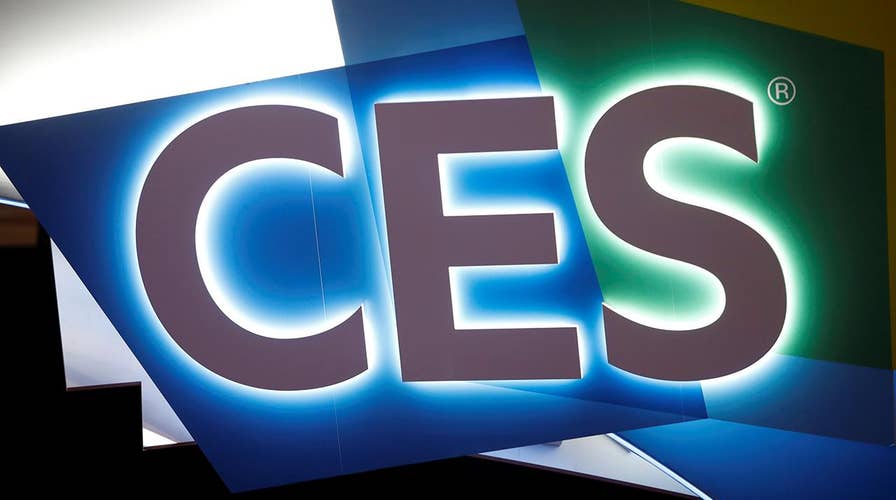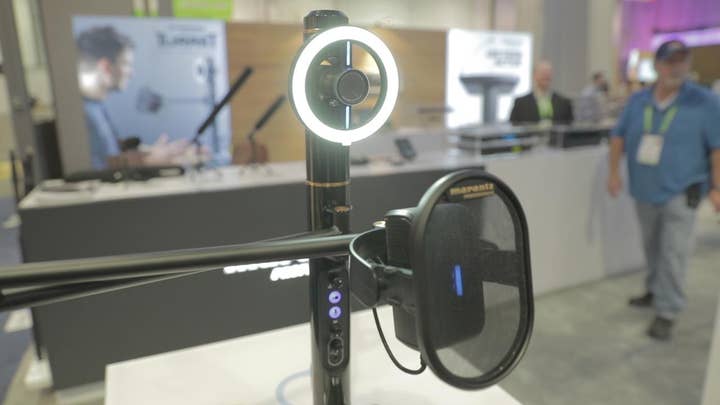CES 2018 offers a peek into the future of technology
Adam Housley shows off the coolest gadgets at the Las Vegas event.
Each January, hundreds of federal, state and local government officials travel to CES – the world’s largest and most influential tech event – to share insights, debate policy and develop a leadership approach that will sustain our country for decades to come.
They travel to Las Vegas for CES because, as Thomas Jefferson once wrote, “Laws and institutions must go hand in hand with the progress of the human mind.” At CES, over 4,000 companies show fabulous innovations and ideas to over 180,000 business executives, media and others from around the world. Policymakers see the possibilities of technologies that will change the human condition, and how American companies can play a leading role boosting our economy, jobs and national standard of living.
Technology drives our nation forward. The tech sector now accounts for 10.3 percent of our country’s GDP and supports 15.3 million jobs. It’s the envy of the world – with the U.S. producing some of the most iconic and loved brands.
CES marks a fresh start to the year – and a new legislative session. Now is the time to prioritize the policies that make America a nation of entrepreneurs, risk-takers and innovators. As policymakers tackle the toughest issues this year, here are critical issues that need to be addressed:
Trade. In the last two years, the U.S. has taken a remarkably uneven approach to foreign policy. On one hand, we’ve made key progress on digital trade with our neighbors to the north and the south, thanks to President Trump’s new U.S.-Mexico-Canada Agreement (USMCA) – the new NAFTA – a long overdue update.
CLICK HERE TO GET THE FOX NEWS APP
On the other hand, we’re closing our doors to China, imposing millions of dollars of tariffs meant to punish China, but which will significantly harm the U.S. economy and workers instead.
President Trump’s December announcement of a 90-day freeze on tariff rate hikes was welcome news. It’s a critical step in the right direction, and one that can improve our relationship with China in 2019.
We need a consistent approach to China – one that deters intellectual property theft without hurting our own economy. By working with other nations who share our values and frustrations with China, we can create a system where free and fair trade aren’t mutually exclusive.
Targeted privacy laws. Consumers want their information protected – but they also love the tailored services, the result of companies harnessing that information. Consumer Technology Association (CTA) research found that nearly half of consumers are willing to share personal information with retailers.
California passed a broad-sweeping privacy law this year, but such laws are ultimately untenable in a digital economy where consumers conduct business across state lines on a daily basis. Federal leaders must partner with industry experts to develop a uniform national framework that both protects consumer privacy and encourages economic growth and innovation.
Immigration policy. Our immigration system is as outdated as our tax system was before last year’s reforms – we haven’t made any significant reforms since 1990. That means that we don’t maximize the benefits of our emerging and dominant companies, as they can’t find and hire the best and brightest talent from around the world.
Other nations are taking advantage of our gridlock. France, Australia and Canada have strategies designed to attract the kind of talent that you find all across CES. Unless we revise our approach, we will lose innovative immigrants to other nations more willing to welcome them.
A solution that prioritizes border security and opens the door for top talent will enable us to thrive in the global economy of the future.
Smart cities and infrastructure. We’re not in a global race for just the top talent. We’re also locked in a race for top internet speeds. The remarkable connectivity 5G – the next generation of wireless networks – delivers will transform our cities and power our economy. Current estimates say 5G will create three million jobs and add $500 billion to our GDP.
To win this international race, we need to invest in our infrastructure. Broadband must accompany new bridges, and small-cells must be deployed. The economy of the future requires an infrastructure for the future – one that gets us from point A to point B faster than ever before, online and in person.
CES gives legislators and agency leaders the opportunity to see, touch and try the technologies of today – and envision how these innovations will power tomorrow. Such insights play a crucial role in effective governance – especially in a democracy.
As the pace of change grows, the challenge of effective leadership grows with it. By coming to CES, our leaders learn to write laws that work not just for the present, but for a future where innovation is essential.










































